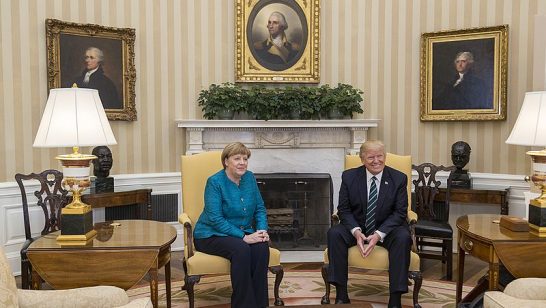
In recent months, the Balkans have been put firmly back on the agenda of both the European Union and NATO. As usual, the reason for the Balkans’ return is not optimism. The region has always been behind the curve of Europe’s positive developments, and too often absent in discussions as to how to solve the continent’s crises. And today, there are a lot of crises. Greece might crash out of the Eurozone, the UK could leave the Union entirely, populism is on the rise, and instability in both Ukraine and Syria threatens the Balkans and beyond.
Knowledgeable analysts have long been arguing that the Western Balkans is Europe’s unfinished business. Sadly, too little has been done in practice to help local communities progress in the development of modern liberal democracies.
Some might argue that the problems facing Bosnia-Herzegovina, Serbia, Macedonia and Kosovo are their own faults, not Europe’s. In 2003, in Thessaloniki, the EU paved the way for their memberships, and left it up to them to meet the conditions. In principle, this is correct, but this attitude doesn’t help us towards the goal of turning the region into an integral part of the Euro-Atlantic area. The relationship should be mutual, as Europe needs the Western Balkans as much as the Western Balkans need Europe. Unfortunately, this is a belief not often held by European politicians, who are well aware their countries aren’t all that enthusiastic about EU or NATO enlargement.
It would be wrong to condemn the European public’s indifference, or to treat it as an excuse for the inaction of politicians. Ordinary EU citizens are worried about their living standards, unemployment and terrorism; they aren’t liable to look at things from a wider perspective. It is the job of political leaders to lead. The problem comes from politicians who do not see beyond their own backyard. Imagine if the visionary post-Cold War leaders had decided not to enlarge the EU and NATO to the east, we would have Russian assertiveness at the heart of our continent, a weaker European market and current European security problems would seem much more serious. The same is true when it comes to the Western Balkans.
The public across Europe must be told the simple fact that if the Western Balkans are not integrated quickly and effectively into the EU then serious problems will emerge. For example, if Macedonia does not achieve stability, neighbouring countries could easily find themselves in trouble. If Bosnia-Herzegovina, which still lives under the Dayton Peace Agreement and resembles less and less a functional state, does not become a viable state, we should expect further growth of nationalism and Islamic radicalism. Europe’s absence also leaves open room for a Russian hybrid approach, with Moscow gaining influence through local Orthodox communities. This could shake the foundations of barely functioning political entities in the region, and help Islamic radicals recruit locals for “higher goals”. For Bosnia and Herzegovina, the state whose constitution was an integral part of the negotiations on the cessation of the war twenty years ago, it can hardly be said it took the path of peaceful development. The leader of the Bosnian Serbs, Russian darling Milorad Dodik, has been sending the same kind of rejection messages to the government in Sarajevo as there used to be sent by the warlords Karadzic and Mladic, which led to the horror of Srebrenica.
Macedonia, once the regional champion of the integration process, has been facing its most serious crisis since independence. The West pushed Macedonia’s name dispute with Greece to table of UN envoy Matthew Nimitz, thereby suggesting it is no hurry of finding a solution to Greece’s blockade on Macedonian membership in NATO. Macedonia’s irresponsible political elite turned to nationalism underwritten by doubtful cultural projects to by manipulate the public’s dissatisfaction and allegedly to mass wiretapping to retain power.
Kosovo has not yet been recognised by all EU and NATO members, many of whom short-sightedly equate their own internal problems with the case of the former Yugoslav province. Thus, Belgrade could not be asked to do more than accept the de facto reality. But more broadly, if Serbia and Kosovo do not find a solution to their relations (and the only solution is a clear European perspective for both), rising ethnic and religious tensions may explode with unpredictable consequences for the wider surroundings.
The criteria for candidate countries need not be loosened, in fact quite the contrary. What is missing in the region is a concerted effort by the EU and NATO to insist on the implementation of necessary reforms. Precise dates of enlargement are not as important as oversight and application of democratic practices and procedures in the region. Strengthening democracy is the best way to prevent these countries finding themselves caught between Western and non-Western values.
The West, preoccupied with its own internal problems, fails to tirelessly emphasise how important it considers democracy, individual rights and free markets to be. Nobody in the Western Balkans would refuse to be free, but there are a growing number of politicians that could use illiberal methods (and money from outside Europe) if it helps them remain in power. Sadly, they can say they follow some of the practices that exist among certain EU and NATO members. Europe might have enough strength and democratic tradition to withstand the onslaughts of nationalism and populism, but the Western Balkans have never managed to stop them alone. Europe alone has also never managed to stop the troubles that spread from the Western Balkans. Decision makers should be aware of these facts when they decide on whether or not to invite Montenegro to join NATO in December. This will be an early indicator as to the awareness in the West of the Western Balkans’ difficult positions.
The opinions articulated above represent the views of the author(s), and do not necessarily reflect the position of the European Leadership Network or any of its members. The ELN’s aim is to encourage debates that will help develop Europe’s capacity to address the pressing foreign, defence, and security challenges of our time.


